If you are a PC gamer, you have probably bought games from Steam. The platform offers discounts for many titles from time to time.
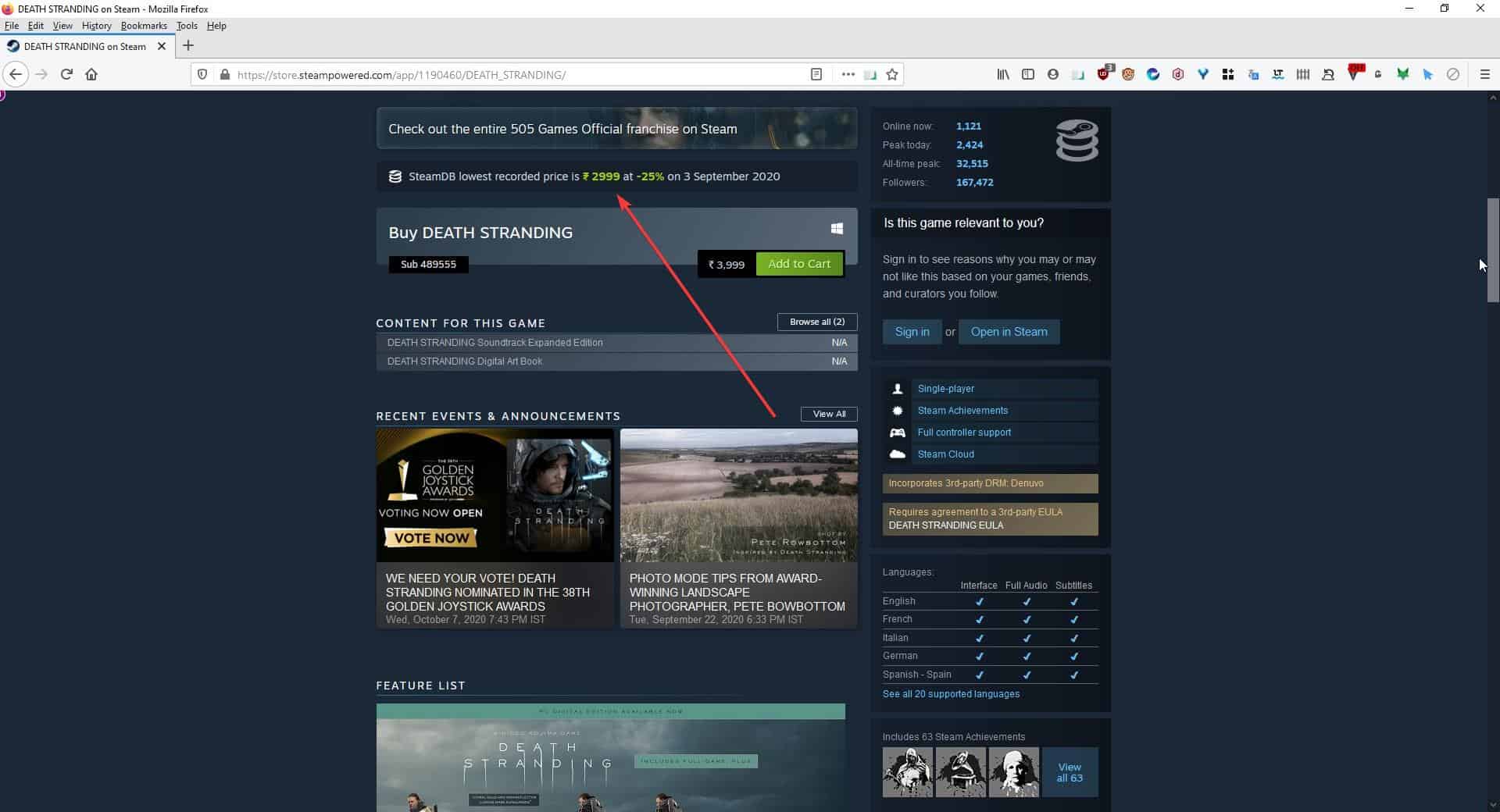
But how do you decide if a discount is the best offer, or at least a good offer?
SteamDB is an extension for Firefox and Chrome that can help you by placing some relevant information right on Steam's web pages.
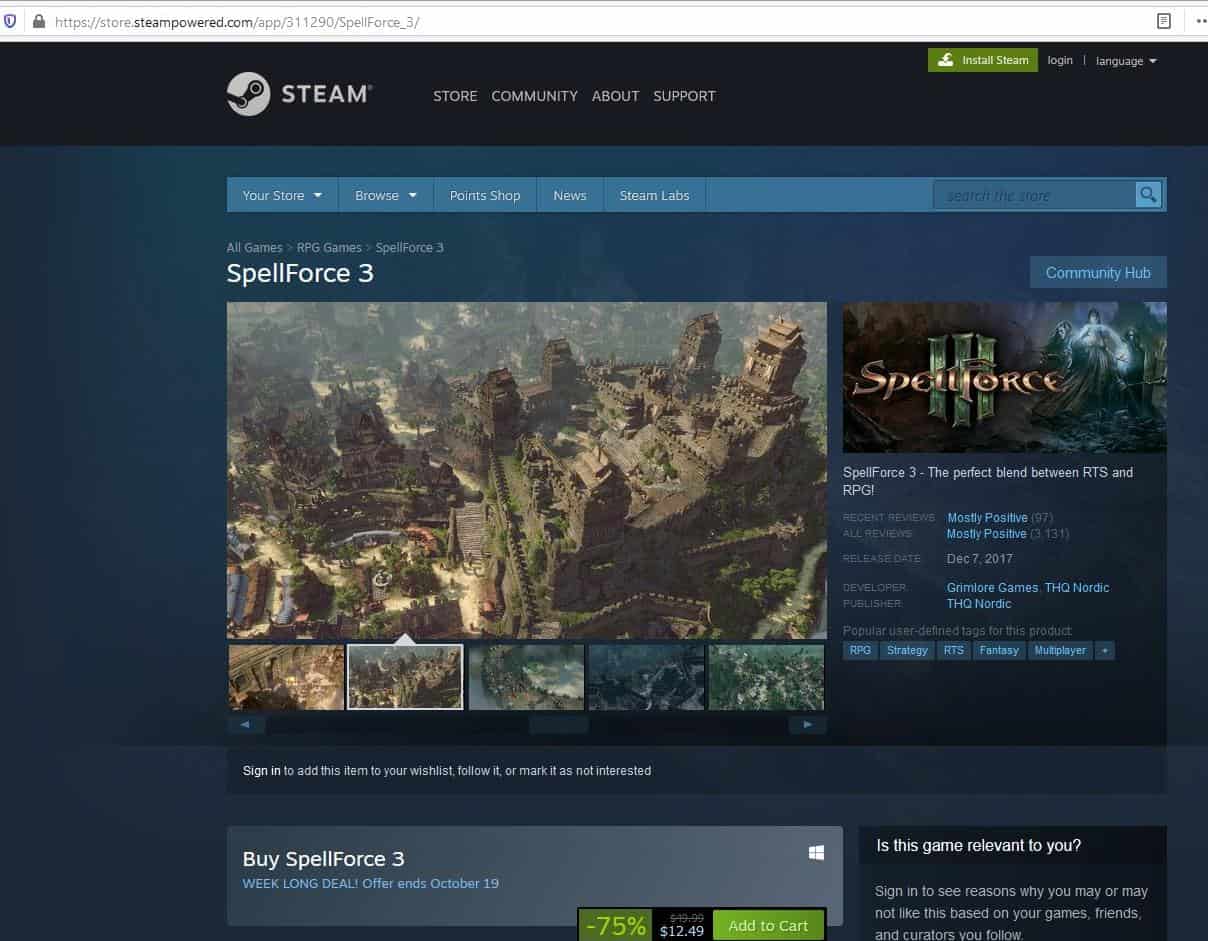
Original page (without SteamDB)
Install the add-on and you'll notice the changes immediately. The add-on places two buttons in the top right corner of every game's listing, these are links that take you to the game's PCGamingWiki and SteamDB pages.
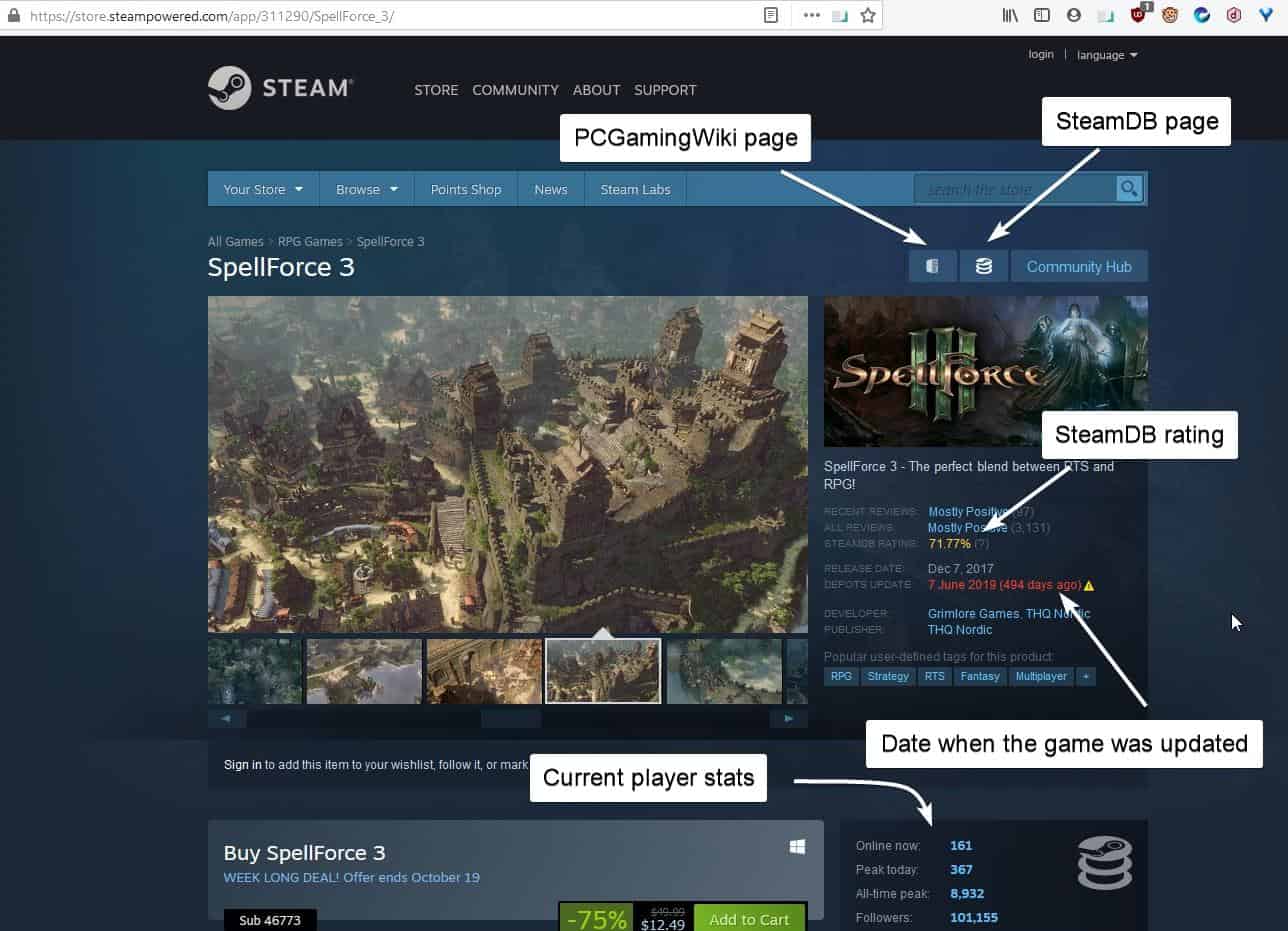
Same page with SteamDB enabled
SteamDB displays a rating (of the game's reviews) in the game's summary box (next to the screenshots). Additionally, it also displays the "Depots Update" date, which indicates when the game was updated. This is helpful as it basically tells you whether a game is still being updated by the developer, or has reached maturity or has been abandoned by the developer (no longer updated).
The SteamDB extension adds a side panel to the right-side of the page that displays some useful statistics. Online now indicates the number of players who are playing the game right now, Peak today represents the highest number of gamers seen that day. All-time peak shows similar information, but includes the highest count ever. Followers is exactly what it sounds like, the number of "fans" the game has.
Most stats aren't useful for single-player games, but you can get a rough idea of how well populated a multiplayer game is.
Want even more stats? Click on the SteamDB icon next to the stats, which will take you the game's page on the SteamDatabase website. It has many charts that display the lifetime concurrent players, owner estimations, store data, playtime estimations (by steamSpy) and other information.
For e.g.
https://ift.tt/340AbZ0
The SteamDB extension adds a price history banner to all Steam game pages. The extension automatically detects your local currency (based on your IP address), it supports several currencies from around the world, unlike IsThereAnyDeal which only supports a handful.
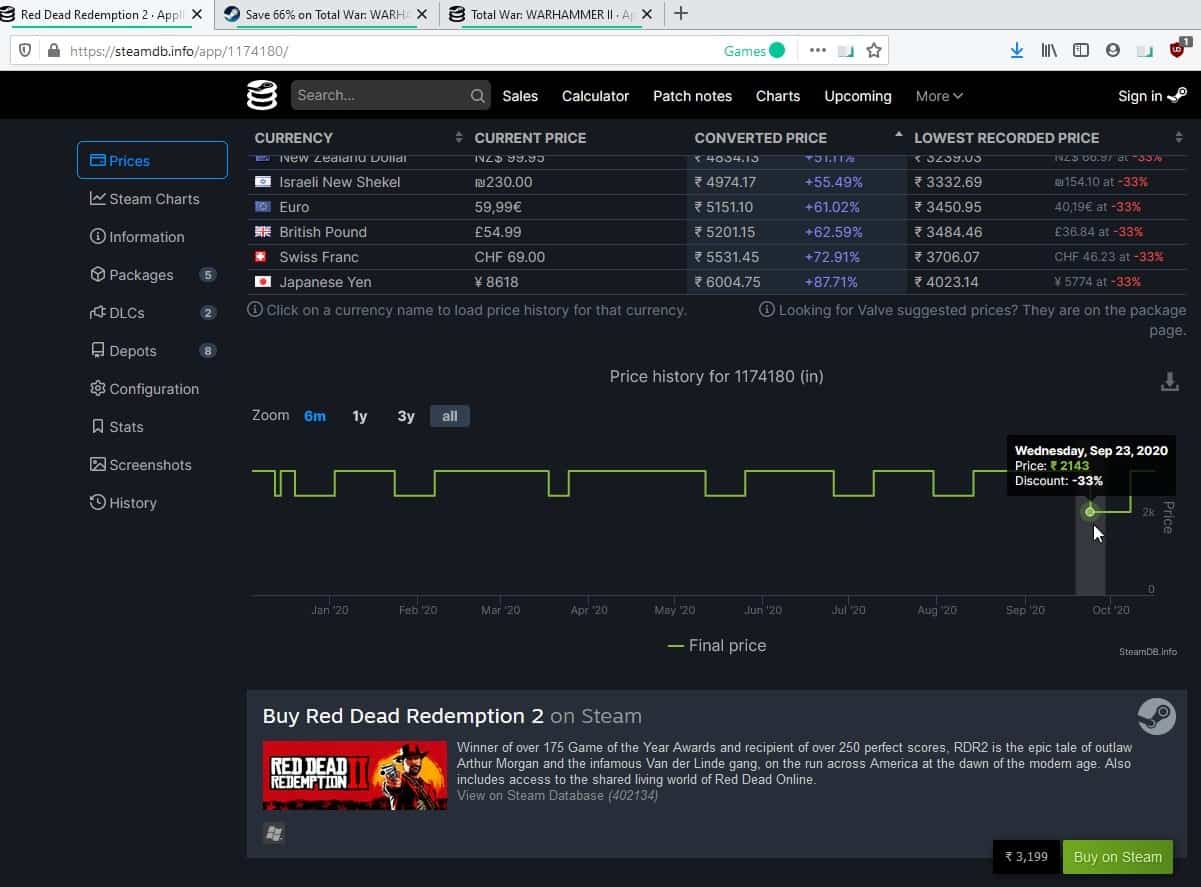
The price history banner indicates what the game's lowest ever price was for, including the discount percentage, and the date when it went on sale for the recorded price.
This is incredibly useful, as it can help you decide whether to buy the or not. If it is on sale and the current price matches the historical lowest price, you can buy it. If the game's discounted but the price is higher than its usual sale price, you can wait for a better deal, or still buy the game if you really want it.
Click on the SteamDB lowest price banner to visit the game's price page on the database site. It displays a timeline that has records of when the game's prices were changed. Use it to observe the historical lowest prices, price drop pattern (for newer games), how often a game goes on sale, etc.
Each game and bundle on Steam has a link to its SteamDB hub (page), that you can access for additional information.
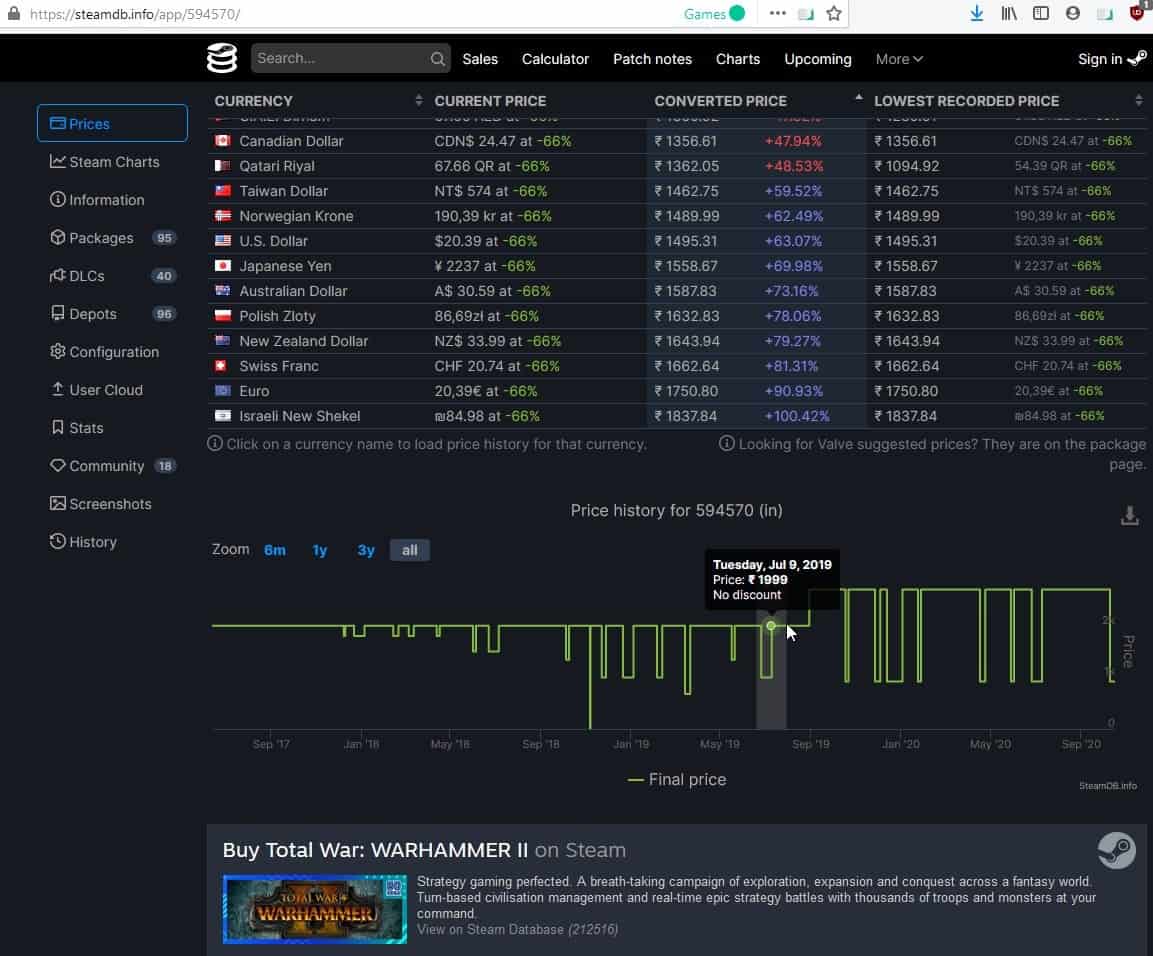
Note: The price history isn't available for Bundles, Collections, etc. You can visit the hub page of each game and DLC in a bundle to view its price history.
You can quickly spot price discrepancies, for e.g. when a game's price is hiked.
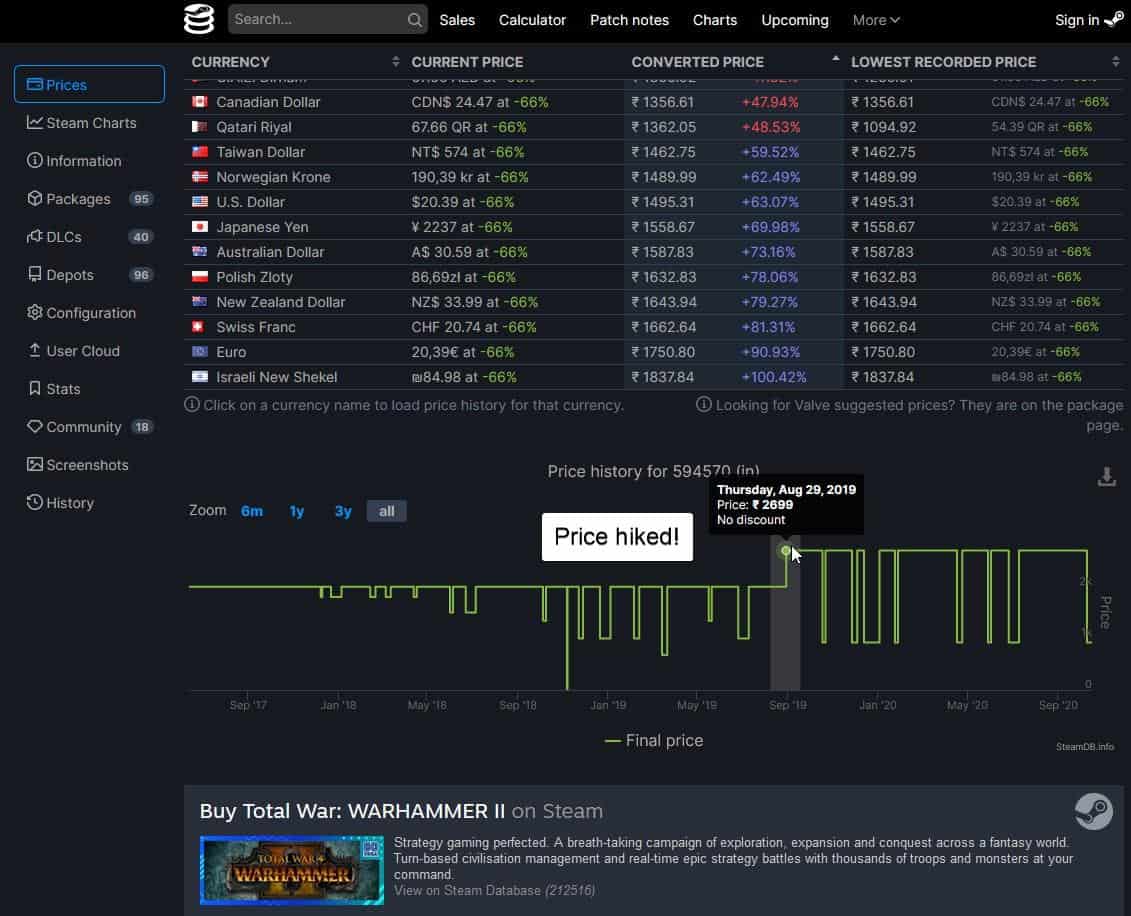
Did I mention that you can view all the above information without having to log in to Steam? You do however get some additional benefits when you log in to SteamDB (via Steam). The add-on can be used to manage your Steam inventory, bypass age-checks for games, show owned items, etc.
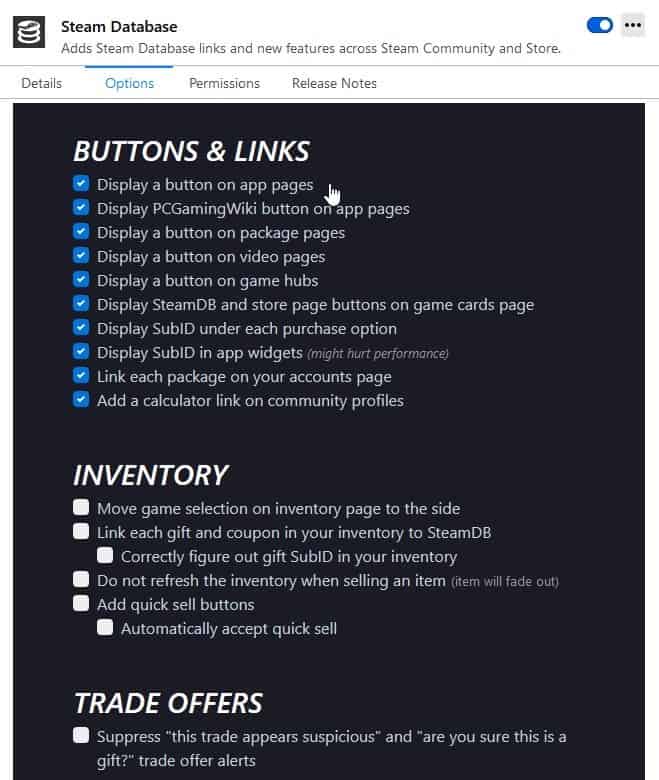
The add-on has several options that you can toggle from its settings page. You can toggle every element that the add-on places on Steam's website.
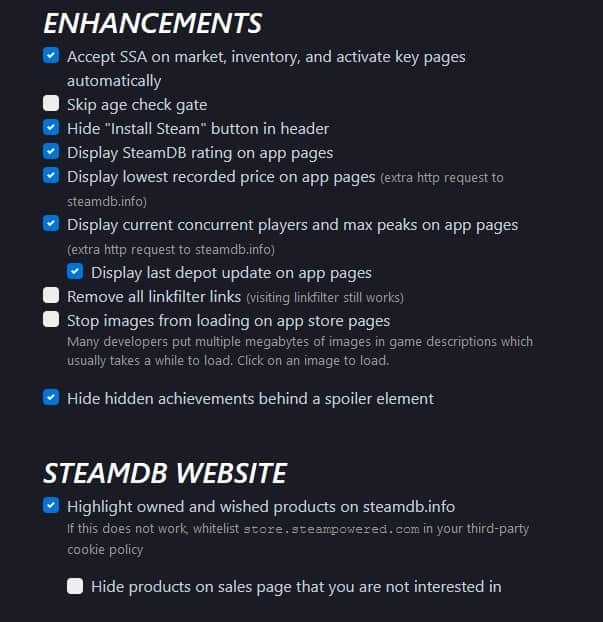
SteamDB is compatible with the Augmented Steam (Enhanced Steam) extension.
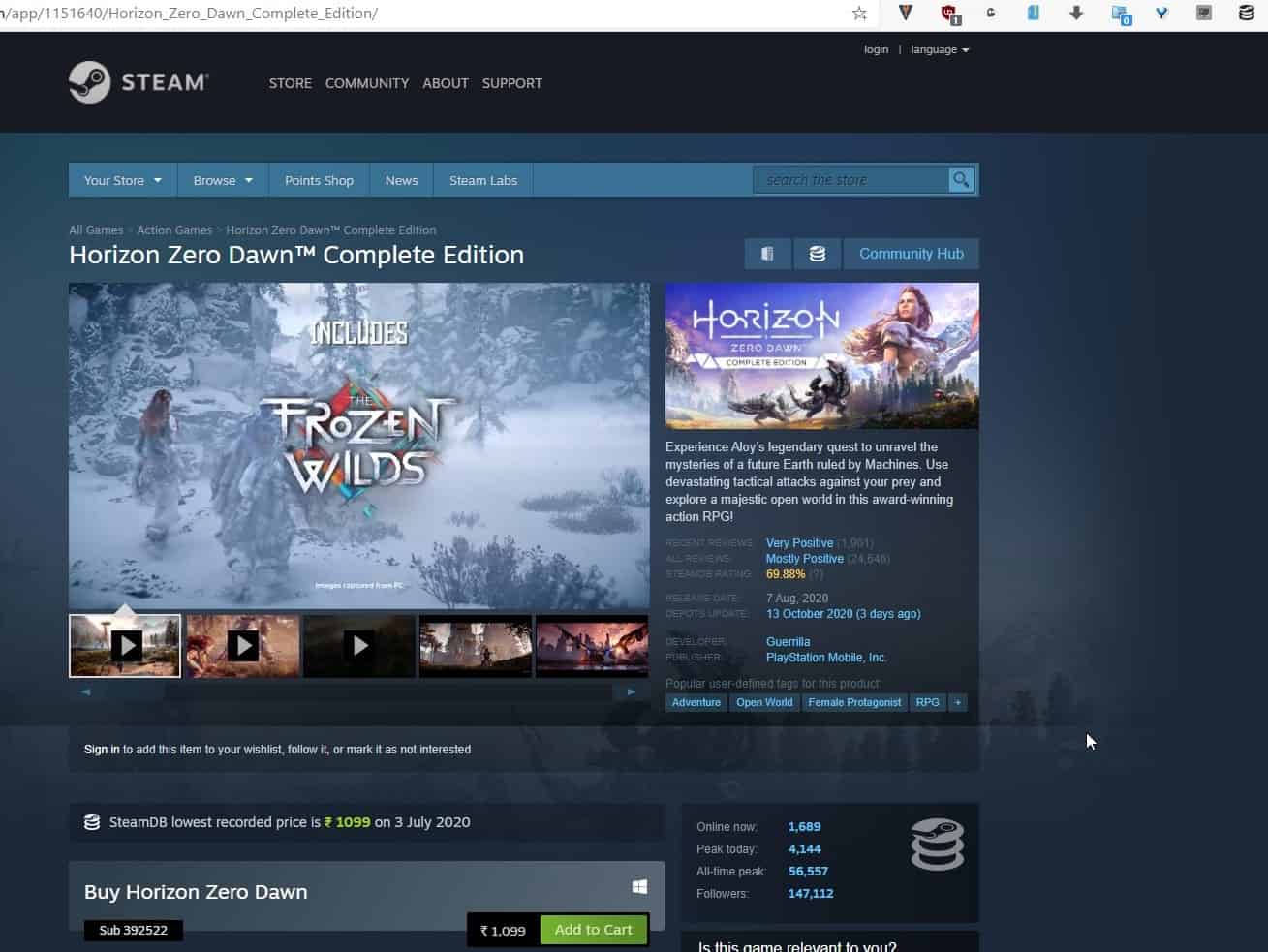
Download the SteamDB extension for Firefox and Chrome.
The add-on is open source. The add-on and the website are something that every Steam gamer should use to save money.
Thank you for being a Ghacks reader. The post Get the price history of Steam games, active player stats and more with the Steamdb extension for Firefox and Chrome appeared first on gHacks Technology News.
https://ift.tt/3j518ic
from gHacks Technology News https://ift.tt/3j5hOX9


No comments:
Post a Comment